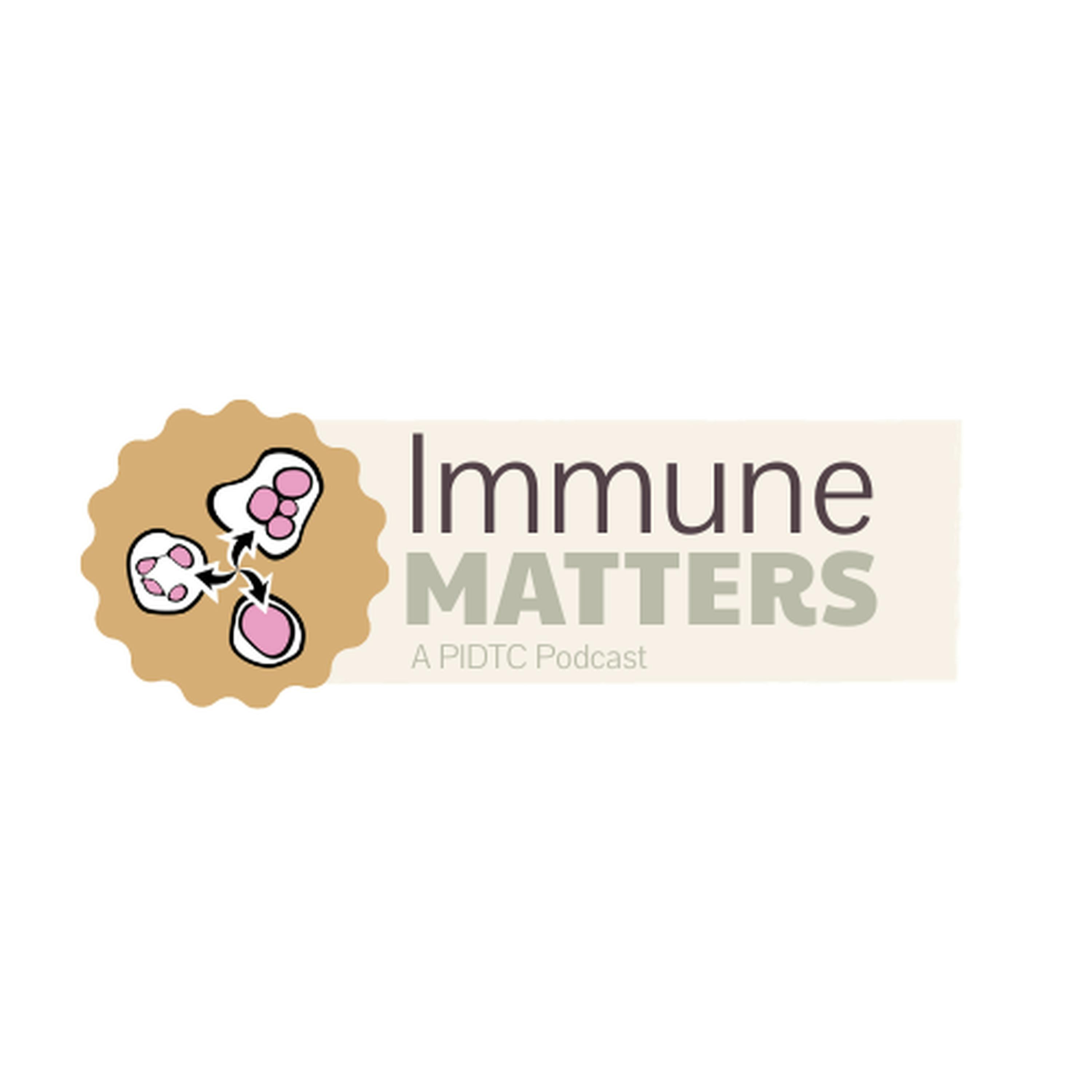Immune Matters: a PIDTC Podcast

Immune Matters: a PIDTC Podcast
Podcast Description
Join Jack McDonnell, MD, a pediatric immunologist and assistant professor at Cleveland Clinic Lerner College of Medicine, and Elie Haddad, MD, PhD, a clinician-researcher in pediatric immunology, full professor at the University of Montreal, and head of the Immunology and Rheumatology department at CHU Sainte-Justine, as they explore the evolving world of immune deficiency and dysregulation.
Presented by the Primary Immune Deficiency Treatment Consortium (PIDTC), this podcast features conversations with leading experts, pioneering researchers, patients, and advocacy groups. Each episode uncovers cutting-edge research, clinical challenges, and personal stories—ensuring that the patient voice remains at the center of the discussion.
Whether you're a clinician, researcher, patient, or advocate, Immune Matters brings you the latest insights in diagnosis, treatment, and innovation in primary immune disorders.
Tune in to explore the science, the stories, and the future of immune health.
The Primary Immune Deficiency Treatment Consortium (PIDTC) is a part of the Rare Diseases Clinical Research Network of the Office of Rare Diseases Research (ORDR), National Center for Advancing Translational Sciences (NCATS), National Institutes of Health (NIH).
This work was supported by the Division of Allergy, Immunology and Transplantation, National Institute of Allergy and Infectious Diseases (DAIT, NIAID) and the ORDR under cooperative agreements U54-AI082973 and U54-NS064808 and grants R13-AI094943 and 1R24AI184316-01.
The content and opinions expressed are solely the responsibility of the authors and do not represent the official policy or position of the NIAID, ORDR, NCATS, NIH, HRSA, or any other agency of the US Government.
Podcast Insights
Content Themes
The podcast focuses on primary immune deficiencies and related disorders, covering topics such as Chronic Granulomatous Disease, Wiskott-Aldrich syndrome, and advances in gene therapy. Episodes often include expert discussions, patient stories, and insights on treatment options and clinical research.

Join Jack McDonnell, MD, a pediatric immunologist and assistant professor at Cleveland Clinic Lerner College of Medicine, and Elie Haddad, MD, PhD, a clinician-researcher in pediatric immunology, full professor at the University of Montreal, and head of the Immunology and Rheumatology department at CHU Sainte-Justine, as they explore the evolving world of immune deficiency and dysregulation.
Presented by the Primary Immune Deficiency Treatment Consortium (PIDTC), this podcast features conversations with leading experts, pioneering researchers, patients, and advocacy groups. Each episode uncovers cutting-edge research, clinical challenges, and personal stories—ensuring that the patient voice remains at the center of the discussion.
Whether you’re a clinician, researcher, patient, or advocate, Immune Matters brings you the latest insights in diagnosis, treatment, and innovation in primary immune disorders.
Tune in to explore the science, the stories, and the future of immune health.
The Primary Immune Deficiency Treatment Consortium (PIDTC) is a part of the Rare Diseases Clinical Research Network of the Office of Rare Diseases Research (ORDR), National Center for Advancing Translational Sciences (NCATS), National Institutes of Health (NIH).
This work was supported by the Division of Allergy, Immunology and Transplantation, National Institute of Allergy and Infectious Diseases (DAIT, NIAID) and the ORDR under cooperative agreements U54-AI082973 and U54-NS064808 and grants R13-AI094943 and 1R24AI184316-01.
The content and opinions expressed are solely the responsibility of the authors and do not represent the official policy or position of the NIAID, ORDR, NCATS, NIH, HRSA, or any other agency of the US Government.
In this episode of Immune Matters, hosts Jack and Elie discuss the Chiron platform with guests Dr. Rebecca Marsh and Dr. Dani Arnold. Chiron is a data interaction tool designed by the PIDTC for researchers in the field of immune deficiency. Dr. Marsh and Dr. Arnold explore Chiron’s features and clinical applications, emphasizing its potential to enhance patient care and research outcomes. The conversation also touches on future developments and access to the platform for investigators.
Keywords: immune deficiency, immune dysregulation, Chiron platform, PIDTC, patient experience, data interaction, clinical research, transplant outcomes, immune disorders, healthcare technology

Disclaimer
This podcast’s information is provided for general reference and was obtained from publicly accessible sources. The Podcast Collaborative neither produces nor verifies the content, accuracy, or suitability of this podcast. Views and opinions belong solely to the podcast creators and guests.
For a complete disclaimer, please see our Full Disclaimer on the archive page. The Podcast Collaborative bears no responsibility for the podcast’s themes, language, or overall content. Listener discretion is advised. Read our Terms of Use and Privacy Policy for more details.